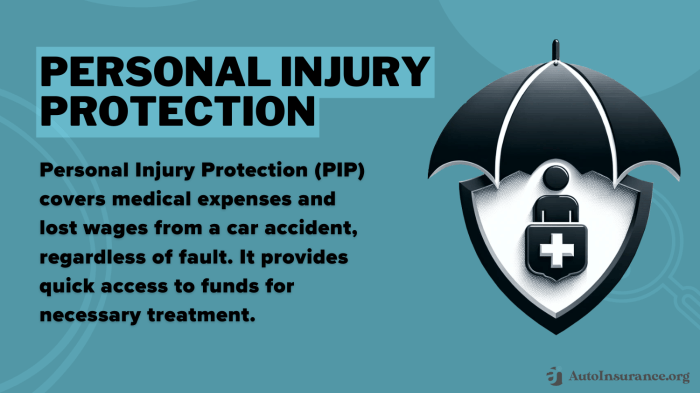Leasing Car Insurance Requirements Florida

Leased car insurance requirements florida – Leasing car insurance requirements Florida: A treacherous labyrinth of legal minutiae awaits those venturing into the realm of leased vehicles. Navigating the complexities of coverage, liability, and specific stipulations within Florida law demands careful consideration. Failure to comprehend these intricate regulations can lead to unforeseen financial burdens and legal complications. This in-depth exploration illuminates the path through this often-confusing landscape.
From the initial steps of securing a lease agreement to the critical insurance considerations, this comprehensive guide dissects the necessary components of responsible car leasing in Florida. Understanding the nuances of liability, collision, and comprehensive insurance is paramount. This examination delves into the specifics of Florida’s requirements, shedding light on the potential implications of insufficient coverage. We will uncover the specifics of lease agreements, the lessor’s role, and the lessee’s responsibilities.
Leasing a Vehicle in Florida: Leased Car Insurance Requirements Florida
The allure of a new car, without the full financial commitment of ownership, beckons many Floridians to explore leasing. Navigating the intricacies of leasing, however, requires understanding the legal framework and financial implications specific to the Sunshine State. This exploration delves into the process, legal requirements, and comparative analysis of leasing versus purchasing in Florida.The process of leasing a vehicle in Florida typically begins with research.
Potential lessees meticulously compare models, options, and lease terms offered by various dealerships. Next, comes the negotiation phase, where lessees engage with sales representatives to secure the most favorable terms. A crucial step is the meticulous review of the lease agreement, ensuring clarity on all financial obligations and conditions. Finally, the signing of the lease agreement formally establishes the lessee’s commitment and the dealership’s obligations.
This process is not without its nuances, demanding attention to detail.
Legal Requirements for Vehicle Leasing in Florida
Florida’s laws governing vehicle leasing, while not as extensive as those for purchasing, mandate transparency and adherence to specific contractual provisions. Dealers must provide comprehensive disclosures outlining the terms and conditions of the lease. Lessees are entitled to a clear understanding of all fees, including acquisition fees, administrative charges, and any other potential expenses. Failure to comply with these requirements can result in legal recourse for the lessee.
Lease Terms and Agreements in Florida
Lease agreements in Florida, like those nationally, typically involve a fixed term, usually ranging from 24 to 60 months. Examples include a 36-month lease on a compact SUV, or a 48-month lease for a luxury sedan. The monthly payment, calculated based on the vehicle’s price, residual value, and the lease term, is a key consideration. Residual value, the estimated value of the vehicle at the end of the lease term, directly impacts the monthly payment amount.
The lease agreement often specifies conditions for mileage limitations, maintenance, and early termination.
Comparison of Leasing vs. Purchasing in Florida
| Feature | Leasing | Purchasing |
|---|---|---|
| Initial Cost | Lower | Higher |
| Monthly Payments | Lower | Higher |
| Ownership | No | Yes |
The table highlights a fundamental difference: leasing offers a lower initial cost and lower monthly payments but forgoes ownership. Purchasing, conversely, provides full ownership but demands a higher initial investment and often higher monthly payments. Factors like the expected lifespan of the vehicle, anticipated future use, and the lessee’s financial situation should all be considered.
Examples of Lease Agreements in Florida
A common example in Florida is a 36-month lease on a mid-size sedan. This lease often involves a monthly payment of approximately $400, with a mileage allowance of 12,000 miles per year. If the lessee exceeds this allowance, they will likely incur an additional charge per mile exceeding the allowance. Another example involves a 60-month lease on a full-size SUV.
This lease, with a lower monthly payment of approximately $350, might have a higher mileage allowance or, in certain instances, no mileage limit. These examples demonstrate the diversity of lease options available in Florida.
Insurance Requirements for Leased Vehicles
The labyrinthine world of car leasing often shrouds the intricate insurance requirements. Navigating these complexities is crucial for avoiding costly surprises and ensuring legal compliance. Failure to meet these demands can lead to penalties, restrictions, and even repossession of the vehicle. Understanding the specific mandates for Florida is paramount.
Specific Insurance Requirements in Florida
Florida law mandates a minimum level of insurance coverage for all vehicles, including those leased. These requirements, however, are not always sufficient for lease agreements. Lenders often demand additional protections. This necessitates careful scrutiny of the specific lease contract.
Minimum Coverage Mandated by Florida Law, Leased car insurance requirements florida
Florida mandates a minimum level of liability insurance. This covers the damages incurred by others in the event of an accident. The specific coverage amounts are Artikeld in Florida Statutes, but often the amounts are not sufficient for the protections required by the lease contract.
Types of Insurance Coverage Typically Required by Lease Agreements
Beyond the minimum requirements, lease agreements frequently stipulate the need for comprehensive and collision coverage. Collision coverage reimburses the lessee for damages to the leased vehicle, regardless of fault. Comprehensive coverage extends this protection to cover damages caused by non-collision events, such as vandalism, fire, or theft. These added layers of protection safeguard both the lessee and the lessor’s investment.
Role of the Lessor in Insurance Requirements
The lessor plays a pivotal role in determining the insurance requirements for the leased vehicle. They dictate the specific coverage needed, often exceeding the minimum legal standards. They typically have a vested interest in ensuring the vehicle’s protection throughout the lease period.
Summary of Insurance Coverage for Leased Vehicles in Florida
| Insurance Type | Description | Relevance to Leased Vehicles |
|---|---|---|
| Liability | Covers damages to others in an accident. | Essential for legal compliance and to avoid financial liability. |
| Collision | Covers damages to the leased vehicle in an accident, regardless of fault. | Often required by lease agreements to protect the vehicle’s value. |
| Comprehensive | Covers damages to the leased vehicle from events other than collisions, such as vandalism, fire, or theft. | Often required by lease agreements to protect the vehicle’s value and prevent financial hardship. |
Liability Insurance for Leased Cars
A leased vehicle, a financial contract, carries significant responsibility. Florida’s stringent laws demand adequate liability insurance coverage, a crucial safeguard against unforeseen accidents and financial ruin. Failure to adhere to these regulations can lead to severe repercussions, impacting both the lessee and the lessor. Comprehending the intricacies of liability insurance for leased cars is paramount for a smooth and protected leasing experience.Understanding the legal requirements and financial implications of inadequate liability insurance is critical for both the lessee and the lessor.
The responsibility for ensuring adequate coverage rests squarely on the lessee’s shoulders. This insurance acts as a crucial shield, protecting both parties from potential financial burdens arising from accidents.
Liability Insurance Requirements in Florida
Florida mandates specific liability insurance requirements for all vehicles, including those leased. These requirements are designed to protect individuals and property involved in accidents. The minimum coverage levels Artikeld by Florida law must be met. Failure to comply with these legal mandates carries severe penalties.
Implications of Insufficient Liability Insurance
Insufficient liability insurance for a leased vehicle in Florida carries severe implications. The consequences can range from financial penalties to legal action. Driving without sufficient coverage is a significant risk, potentially exposing both the lessee and the lessor to substantial financial liabilities. The absence of adequate insurance can lead to costly legal battles and financial hardship for all involved.
Consequences of Violating Florida’s Liability Insurance Laws
Violating Florida’s liability insurance laws for leased vehicles has far-reaching consequences. The penalties for failing to maintain adequate coverage can be substantial, including fines, suspension of driving privileges, and even legal action from those affected by an accident. These consequences can severely impact the lessee’s personal finances and driving record.
How Liability Insurance Protects Lessee and Lessor
Liability insurance serves as a vital safeguard for both the lessee and the lessor of a leased vehicle in Florida. It provides a financial safety net, covering damages to other parties in the event of an accident where the lessee is at fault. This protection alleviates the financial strain on both parties, preventing them from being held personally liable for damages exceeding the policy limits.
Liability Insurance Coverage Amounts and Implications
| Coverage Amount | Description | Impact on Lessee/Lessor |
|---|---|---|
| $100,000 | Covers property damage and bodily injury to one person in an accident where the lessee is at fault, up to $100,000. | Provides a basic level of protection, but may not fully cover significant damages. |
| $300,000 | Covers property damage and bodily injury to multiple people in an accident where the lessee is at fault, up to $300,000. | Offers substantial protection against potential financial losses, safeguarding both the lessee and the lessor from severe financial repercussions. |
Collision and Comprehensive Insurance

The labyrinth of leasing a vehicle in Florida often leads to a crucial juncture: collision and comprehensive insurance. These seemingly technical terms hold the key to safeguarding your financial well-being and preserving the integrity of your leased car. Understanding these nuances is paramount for a smooth and worry-free leasing experience.The very essence of leasing a vehicle hinges on protecting it from damage.
Collision and comprehensive coverage serve as a vital shield, mitigating the financial burden should the unforeseen occur. A clear comprehension of these protections and their associated costs is essential to making informed decisions.
Collision Coverage Requirements
Collision coverage, in its essence, safeguards your leased vehicle against damage resulting from a collision with another object. This coverage is designed to protect your investment from the perils of accidents, irrespective of who is at fault. It directly compensates for the repair or replacement of your leased car, should a collision occur.
Comprehensive Coverage Requirements
Comprehensive insurance provides a safety net against perils beyond the scope of a collision. This insurance acts as a shield against various events, such as vandalism, fire, theft, hail damage, or even falling objects. Essentially, it covers damages that stem from non-collision incidents, safeguarding your leased vehicle against a wide array of potential threats.
Collision vs. Comprehensive Insurance Costs
The financial implications of collision and comprehensive insurance are significant. Premiums for collision coverage can fluctuate based on factors such as the make, model, and value of your leased car. Similarly, comprehensive coverage costs can vary, influenced by the same factors. Ultimately, insurance companies evaluate risk profiles to set premiums. This can result in differing costs depending on your specific leasing agreement.
For example, a luxury sports car will likely incur higher premiums compared to a compact economy model.
Financial Implications of Not Having Coverage
The consequences of neglecting collision and comprehensive insurance can be financially devastating. Without this coverage, you are solely responsible for the cost of repairs or replacement. This can easily exceed your budget, leaving you with substantial out-of-pocket expenses. For instance, a major accident or a fire could lead to significant financial distress if you lack adequate coverage.
Benefits and Drawbacks of Collision and Comprehensive Insurance
| Insurance Type | Benefit | Drawback |
|---|---|---|
| Collision | Covers damage to your vehicle in a collision, regardless of fault. | Can be expensive, depending on the vehicle’s value and risk profile. |
| Comprehensive | Covers damage to your vehicle from non-collision events, such as vandalism, fire, or theft. | Can be expensive, depending on the vehicle’s value and risk profile. |
Additional Insurance Considerations

Navigating the labyrinthine world of leased car insurance in Florida demands a keen eye and a steely resolve. Lease agreements, often shrouded in legalese, conceal crucial details about your insurance obligations. Understanding these nuances is paramount to avoiding costly surprises and ensuring your rights are protected. Failure to comply with specific requirements can lead to serious repercussions, including lease termination or financial penalties.Florida’s unique approach to leasing insurance mandates a meticulous review of every clause.
The financial implications of inadequate coverage can be severe. This section delves into the supplementary considerations that extend beyond basic liability requirements, highlighting potential pitfalls and offering practical strategies for a smoother leasing experience.
Florida-Specific Lease Provisions
Florida lease agreements frequently include clauses demanding specific insurance types and minimum coverage limits. These provisions often dictate the insurer, policy number, and the required level of coverage. Failure to meet these conditions could lead to the immediate termination of the lease. A thorough review of these provisions is crucial to understanding your obligations.
Understanding Insurance Clauses
Carefully scrutinize the insurance clauses within your lease agreement. Look for specific stipulations regarding the insurer, policy limits, and the types of coverage required. Determine whether the lease mandates specific policy numbers or allows for flexibility in insurer selection. If the lease demands a particular insurance company, ascertain the reasons behind this requirement. Note any limitations or restrictions placed on your choice of insurer.
Thorough comprehension is key to avoiding unforeseen legal entanglements.
Uninsured/Underinsured Motorist Coverage
Uninsured/underinsured motorist coverage is an indispensable component of your insurance policy, particularly when leasing a vehicle in Florida. This coverage safeguards you and your vehicle against the financial burden of an accident involving a driver lacking sufficient insurance. In Florida, this coverage is crucial for protecting your financial interests in the event of a collision with a negligent or uninsured motorist.
Failure to maintain adequate uninsured/underinsured motorist coverage could leave you financially vulnerable in the event of an accident.
Additional Requirements
- Proof of Insurance: Florida law mandates that you furnish proof of insurance, which might include a certificate or policy summary, to the leasing company. This ensures compliance with the lease terms and legal obligations.
- Minimum Coverage Limits: Florida’s lease agreements often specify minimum coverage limits for liability, collision, and comprehensive insurance. Exceeding these limits can enhance your protection but is not mandatory.
- Named Insurer Clauses: Some leases stipulate that you must use a particular insurance provider. Thorough understanding of the reasoning behind this provision is vital. Such clauses are common in cases of specialized or high-risk vehicle leasing.
- Policy Changes: In Florida, significant changes to your insurance policy, like a policy cancellation or a change in coverage, might necessitate notification to the leasing company. These changes must align with the terms Artikeld in the lease agreement. This crucial step ensures that your coverage remains consistent with the lease’s stipulations.
Conclusion
In conclusion, securing the appropriate leased car insurance in Florida is a crucial step in the leasing process. A thorough understanding of liability, collision, and comprehensive coverage is essential. Florida’s specific regulations demand careful attention to detail. By meticulously reviewing lease agreements and insurance policies, lessees can protect themselves from potential financial pitfalls. This guide has provided a crucial overview, empowering you to navigate the complexities of leased car insurance in Florida.
Top FAQs
What is the minimum insurance coverage required for leased vehicles in Florida?
Florida law mandates minimum liability insurance coverage for all vehicles, including leased ones. The exact amounts may vary depending on specific circumstances but typically involve a combination of bodily injury and property damage coverage.
What if I don’t have the required insurance for my leased car?
Failure to maintain adequate insurance can lead to significant penalties, including hefty fines, suspension of driving privileges, and even legal action by the lessor. This underscores the importance of complying with all insurance regulations.
Does the lessor have any role in the insurance requirements?
The lessor plays a crucial role in ensuring the lessee has the appropriate coverage. They often require a specific level of insurance and may even have a role in securing the coverage if the lessee doesn’t fulfill the requirements.
What are the differences between collision and comprehensive insurance?
Collision insurance covers damage to your vehicle caused by a collision with another object or vehicle. Comprehensive insurance covers damage to your vehicle caused by events other than collisions, such as vandalism, theft, or weather-related incidents. Understanding these distinctions is essential for making informed choices.




